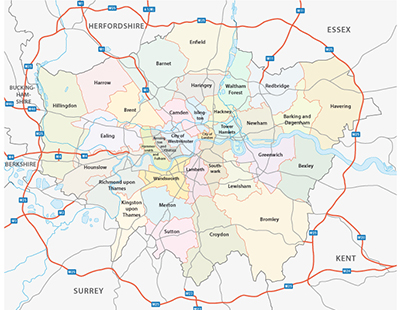
Average room rents rose by 10 per cent or more in every UK region, every London region and almost every major town and city, compared to the start of 2022.
Data from flatshare site SpareRoom shows that average monthly room rents in the capital have now soared to £952, up 20 per cent year-on-year.
For the first time ever there’s not a single London postcode with average monthly rents under £700. Even traditionally cheaper areas like Abbey Wood (SE2) are becoming more expensive, due in part to their relative affordability, but also as a result of better transport links, thanks to the Elizabeth Line.
The number of London postcodes where the average room rent tops £1,000 a month more than quadrupled in the past year. There are now more than 30 postcode regions where the average is £1,000 or more, and Chelsea passed the £1,500 mark for the first time.
Taking a wider look across the country, UK room rents rose by 15 per cent in the first quarter of 2023, compared to Q1 2022. North East and North West regions saw the biggest rent increases after London, both up 16 per cent when comparing Q1 2023 with Q1 2022.
SpareRoom director Matt Hutchison says: “Although demand for rooms has fallen since the record highs at the end of 2022, it’s still above pre-pandemic levels.
“Combined with higher interest rates and an increased cost of living, that’s continuing to push rents up.
“Demand is likely to fall a little over the course of the year, but unless something is done to stop the continuing decline in rental supply, things aren’t likely to improve much for renters. Government has to do much, much more to help, or the housing crisis will become a housing disaster.”














%20-%20IMAGE%20Client%20Accounting%20%E2%80%93%20what%20are%20your%20options.jpg)
%20(002).png)

.png)
.png)

%20(002).jpg)












Join the conversation
Jump to latest comment and add your reply
Its a shame that a few residential landlords are giving up on the businesses that could give them income for life. I have a rental unit in Stevenage that had an EPC of Grade E. My tenant had moved out to FTB a brand new flat. I took the opportunity to get my plasterer to install Recticel Instafit slimline insulation panels on all of the internal walls (those on the external elevations) because I couldn't get the other long leaseholders to jointly pay of cavity wall insulation, I took out the old gas combi boiler, that had been giving me problems, and got my electrician to install just two Dimplex Quantum night-storage heaters and an Economy 7 hot water tank. I've had the flat's EPC re-assessed and its now an EPC Grade C. With the proposed MEES legislation soon hitting us this unit is now fit-for-purpose for many years to come. I started the process by getting a draft predicted EPC from my long-time energy assessor who guaranteed the final EPC Grade C outcome. I'm close to signing a long-term lease with a supported living provider who will putting a disabled tenant into this flat.
I can't understand why landlords are giving up when the solutions are pretty straight-forward.
Gibbons you have an axe to grind ! Labour party activist or what ? You will get staggeringly high electricity bills for this flat !!
..........Gibbons........ you obviously are not a Landlord............ you probably work for government or some green group sponsored by government..............
Please login to comment